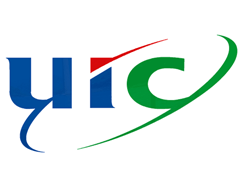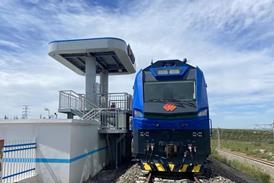Close menu
- Home
- News
- In depth
- Events
- Data
- Maps
- Tenders & Jobs
- Sponsored content
- Insights
UIC crisis could last until Christmas
By Railway Gazette International and Chris Jackson2008-05-20T21:35:00

Current tensions over the leadership and direction of the International Union of Railways could last until the end of this year, according to insiders attending the organisation's statutory meetings in Seoul on May 18 – 19. Chris Jackson reports from Korea
Already have an account? LOG IN
To continue…
You’ve reached your limit of content for the month
Get enhanced access to Railway Gazette news and weekly newsletters.
Site powered by Webvision Cloud














